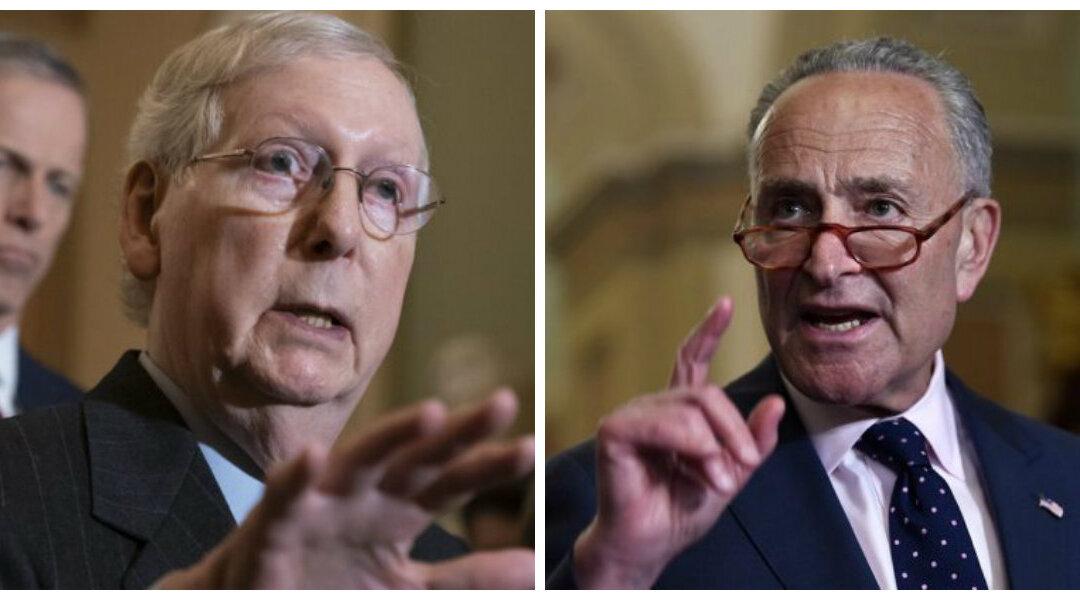Senate Republicans joined with Democrats on Sept. 30 to pass stopgap legislation to fund the government through December, averting a government shutdown set to begin in the early hours of Oct. 1. The House later aligned with the Senate, voting 254–175 to avert a government shutdown.
However, the measure fails to address the debt ceiling, which Republicans have said they won’t vote to raise.





